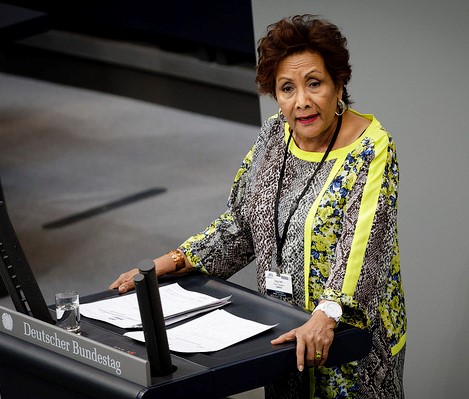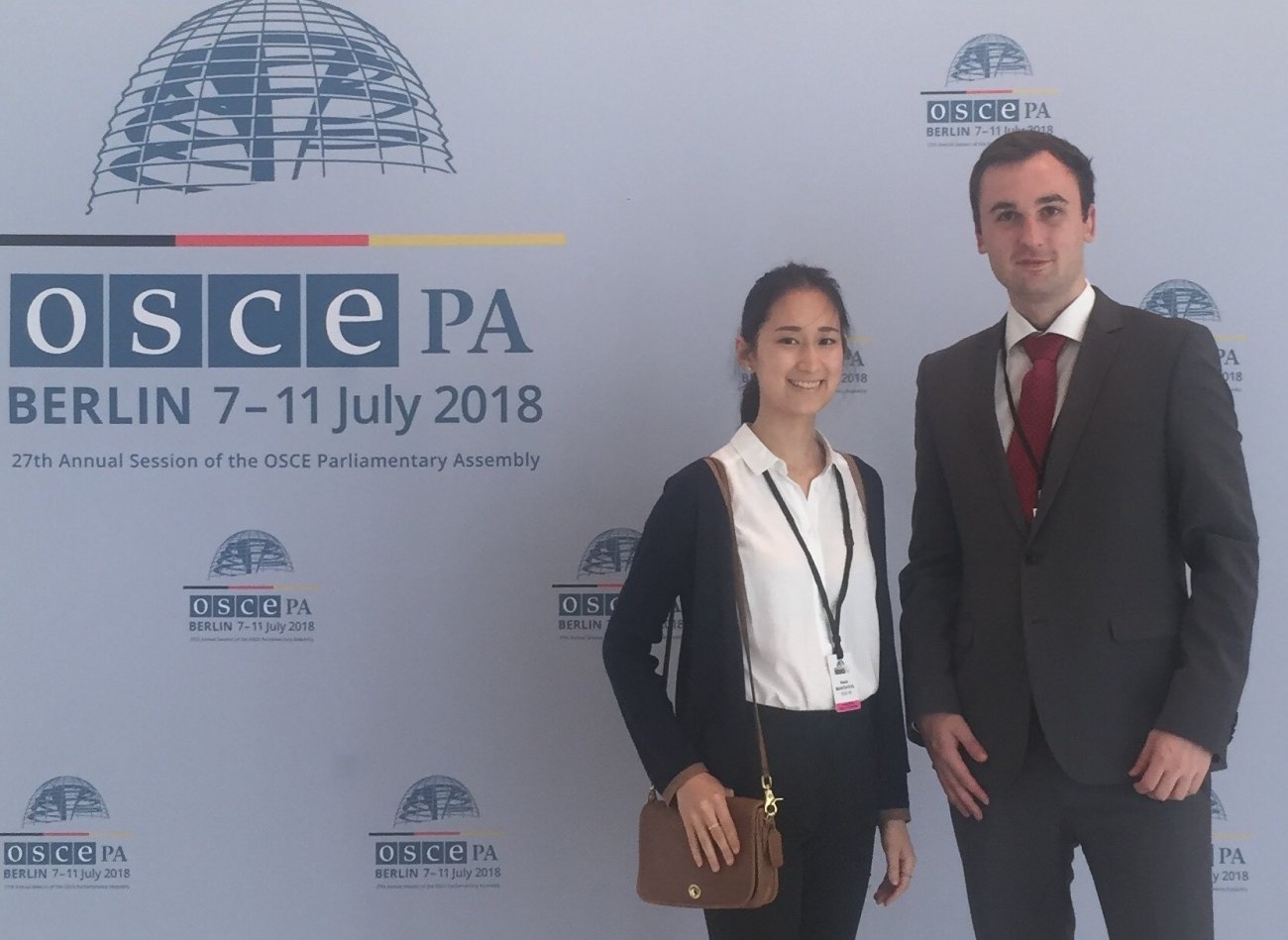Parliamentarians meet in Berlin for OSCE Parliamentary Assembly. Declaration on human rights, peace, security and the environment is adopted. The meeting precedes NATO Assembly in Brussels and Trump-Putin Summit in Helsinki.
Over 300 parliamentarians from Europe, Russia, Central Asia, the Caucasus, Canada and the United States meeting in Berlin this week, adopted a declaration expressing deep concern about unresolved conflicts and nuclear weapons threats in the region, and proposing measures that should be taken to rebuild peace and security in Europe.
The parliamentarians were in Berlin for the OSCE Parliamentary Assembly, which was held just prior to the NATO Summit in Brussels and the Trump-Putin Summit in Helsinki.
The declaration calls on nuclear armed and allied states to agree to no-first-use of nuclear weapons, adopt other disarmament and confidence-building measures, increase direct military-to-military contacts, and engage in structured dialogue to address the serious conflicts in the region. These conflicts include the increased tensions and provocations between Russia and NATO and the armed conflicts in (and relating to) Ukraine, Nagorno-Karabakh, Georgia and Ukraine.
The declaration promotes mediation and dialogue as ‘cost-effective ways of preventing, managing and resolving violent conflicts,’ and highlights OSCE processes that are already helping to manage the conflicts, but need further political support for full success. (Declaration in English, French or Russian.)
OSCE, NATO and Trump-Putin Summit
The OSCE Parliamentary Assembly, being held just prior to the NATO Summit in Brussels and the Trump-Putin Summit in Helsinki, provides a reminder that there are possibilities and processes for peaceful resolution of conflicts between Russia and the West, rather than ratcheting up the war machine which would just exacerbate the problem. (See also Trump - Putin summit: Time for dialogue, detente and disarmament).
Parliamentary delegations participating in the OSCE Parliamentary Assembly were well aware that peace and security are not easy, and that human rights, democracy, environmental protection and law must be upheld. As such, the declaration includes many references to these issues as part of a comprehensive approach to human and state security in the region.
The parliamentarians took a 'realistic' approach to the issues – giving strong support, for example, to nuclear risk-reduction and disarmament measures that have a possibility of being adopted in the near term such as no-first-use policies, but rejecting initiatives and proposals which currently have very little traction with the nuclear armed and/or allied (NATO) states.
Proposals that were rejected included one by Russian delegates for the removal of all nuclear weapons that are hosted by non-nuclear (NATO) countries, and a proposal co-sponsored by PNND Members David Caracedo MP (Spain) and Soren Sondegaard MP (Denmark) for the OSCE PA to endorse the Treaty on the Prohibition of Nuclear Weapons. The latter proposal was defeated by a large majority of the parliamentary delegates, given the fact that very few of the OSCE countries and none of the nuclear-armed or other NATO states, are likely to join, or be bound by, the treaty.
PNND input into OSCE Parliamentary Assembly
PNND circulated a backgrounder ‘Dialogue, détente and disarmament: The Role of parliamentarians and the OSCE’ to the delegates. This included an update on key nuclear weapons issues and upcoming events (such as the Trump/Putin Summit) and action ideas for parliamentarians. Contact PNND for a copy of the backgrounder.
PNND members also played key roles in advancing specific issues and proposals for peace, security, nuclear risk-reduction and disarmament.
In addition to co-sponsoring the text supporting the TPNW, Mr Sondegaard MP (Denmark), co-sponsored text, which was adopted, supporting the aim of a nuclear-weapon-free world and full ratification of the Comprehensive Nuclear Test Ban Treaty.
Mr Stephane Crusniere MP (Belgium), Ms Margret Kiener Nellen MP (Switzerland) and Ms Hedy Fry MP (Canada) cosponsored text, that was adopted, supporting the Structured Dialogue initiative to counter the risk of military escalation.
Gender-based violence

As the OSCE Parliamentary Assembly Special Representative on Gender Issues, Ms Fry also proposed text, that was adopted, on ensuring effective participation of women at all levels of security management. She also submitted a detailed report and supplementary resolution on Preventing and Combating Gender-Based Violence.
The resolution, which was adopted, calls on OSCE countries to undertake various measures to prevent gender-based violence, implement UN Security Council Resolution 1325 on Women, Peace and Security, and encourage men and boys to take an active role as both powerful agents and beneficiaries of gender equality and an end to gender-based violence.
Security sector governance
Ms Nellen, who was elected to be the new chair of the General Committee on Democracy, Human Rights and Humanitarian Questions, also submitted a supplementary resolution, which was adopted, on Strengthening the OSCE’s Approach to Supporting Security Sector Governance and Reform in Participating and Partner States.
The resolution provides a detailed outline of how to advance structured dialogue on current conflicts and future risks in ways that engage all relevant sectors including government, legislators, military and civil society.
Common security for a sustainable and nuclear-weapon-free world
Ms Fry and Ms Nellen were also signatories of Common security for a sustainable and nuclear-weapon-free world, an appeal by 50 women parliamentarians, released on May 24 International Women’s Day for Peace and Disarmament, which calls for nuclear deterrence to be replaced by diplomacy, international law and common security mechanisms, and which highlights the important role of the OSCE to achieve this.

Nike Air Force 1 '07 Lv8 Utility White/White-Black-Tour Yellow


